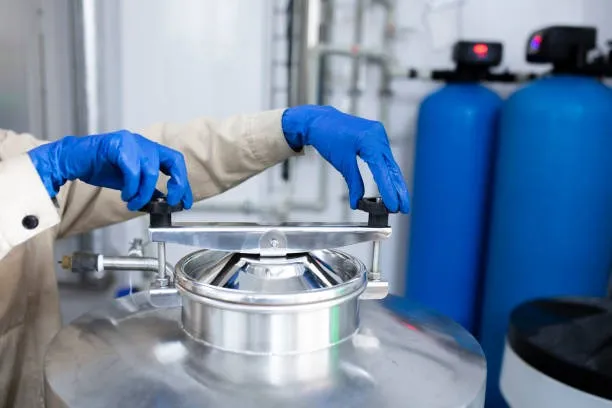
Boiler Replacement in Wrightsville, PA
Replacing an aging or failing boiler is a major decision for Wrightsville homeowners. With cold, often damp winters and many older homes along the Susquehanna River that rely on hydronic heating, choosing the right replacement affects comfort, fuel costs, and long-term reliability.
When to consider a boiler replacement
- Recurrent breakdowns or rising repair frequency and cost.
- Boiler is 15–25 years old and uses outdated technologies with AFUE (annual fuel utilization efficiency) below 80%.
- Uneven heat, cold radiators, or long warm-up times despite maintenance.
- Frequent short-cycling, strange noises, or visible rust/leaks.
- Safety concerns such as cracked heat exchanger or persistent combustion problems.
- Upgrading fuel type (oil to gas/propane) or converting to a high-efficiency system to reduce operating costs.
If your home is experiencing one or more of these issues, a replacement often makes more sense than repeated repairs.
Benefits of high-efficiency boiler models for Wrightsville homes
- Lower fuel bills: Modern condensing boilers achieve AFUE ratings in the low to high 90s, reducing fuel use compared with older units.
- Improved comfort: More consistent room temperatures and better response with properly sized systems.
- Reduced emissions: Higher efficiency and cleaner combustion are better for local air quality.
- Compatibility with low-temperature systems: Efficient boilers work well with radiant floors and modern baseboard designs.
- Longer service life and modern controls: Newer boilers include advanced controls, zoning support, and modulating burners that match output to demand.
Local winter temperatures make efficiency especially valuable: every percentage point of efficiency reduces the fuel burned during Wrightsville’s cold months.
System sizing and heat-loss calculations
Correct sizing is crucial. Oversized boilers short-cycle and waste energy; undersized boilers fail to maintain comfort. A proper replacement includes a room-by-room heat-loss calculation that considers:
- Square footage, ceiling height, and insulation levels
- Window type and orientation
- Air infiltration and building envelope condition
- Local climate data and design temperature for Wrightsville
- Existing radiator or baseboard output and piping losses
A heat-loss calculation produces the required BTU/hr capacity. From there, we select a boiler that can modulate within that load range for efficient, quiet operation.
Condensing vs conventional boilers — which is right for your home?
Condensing boilers
- Capture latent heat from flue gases for much higher efficiency (AFUE 90%+).
- Require lower return-water temperatures to condense; ideal with radiant systems or properly sized baseboards.
- Need a corrosion-resistant heat exchanger and a condensate drain and neutralizer.
- Typically higher upfront cost but lower operating cost and often eligible for rebates.
Conventional (non-condensing) boilers
- Simpler technology, usually lower initial cost.
- Can be a better fit for older radiator systems with high return-water temperatures where condensing benefits are limited.
- Less complex venting, sometimes preferable where retrofitting condensate drains or updating piping is impractical.
Choosing between them depends on your existing distribution system, return-water temperatures, budget, and long-term energy goals.
The replacement process: on-site assessment through installation
On-site assessment
- Visual inspection of existing boiler, piping, venting, and fuel connections.
- Collect data for a detailed heat-loss calculation and review distribution components (radiators, baseboards, radiant tubing).
Equipment selection
- Recommend boilers sized to calculated load, review condensing vs conventional options, and select controls and expansion tanks.
Permitting and scheduling
- Secure local permits and ensure installations meet Pennsylvania and local codes.
Removal and disposal
- Safely disconnect fuel lines, electrical, and venting; remove the old unit; decommission any abandoned oil tanks or components per local regulations.
Installation
- Set new boiler, connect piping, venting, fuel, condensate drain (if condensing), and controls.
- Install necessary system upgrades (backflow, expansion tank, pressure relief valves) and update zone valves or thermostats.
Commissioning
- Fill and purge system, check for leaks, perform combustion efficiency testing, and tune controls. Balance system and verify zoning.
Owner orientation & documentation
- Explain operation, maintenance schedule, and warranty registration. Provide product manuals and efficiency documentation.
Financing, rebates, and incentives
Many homeowners offset replacement costs through:
- Local utility rebate programs and performance-based incentives
- State or federal tax credits for qualifying high-efficiency equipment (subject to current program rules)
- Flexible financing options from specialty lenders that spread payments over time
Availability and eligibility vary; documentation of efficiency ratings and installation details is typically required for rebates or tax credits.
Disposal of old equipment and environmental considerations
Old boilers and associated components are handled according to safety and environmental standards:
- Metal recycling of removed boiler and piping where feasible
- Proper decommissioning and closure of abandoned oil tanks per state/local regulations
- Safe handling of any hazardous components, and disposal of fluids and materials in compliance with environmental requirements
Responsible disposal minimizes environmental impact and avoids future liabilities.
Warranty expectations and maintenance
- Manufacturer warranties: Typically range from 5–10 years on key components like the heat exchanger; parts warranties vary.
- Labor warranties: Installers often provide separate labor warranties for workmanship, commonly 1–5 years.
- Extended coverage: Extended and bundled service plans may be available to protect both parts and labor beyond initial warranty periods.
- Maintenance: Annual tune-ups and combustion checks are crucial to preserve efficiency, safety, and warranty eligibility.
Keep records of service visits and any maintenance to support warranty claims.
Estimated energy savings and payback
- Replacing an older boiler (AFUE 70–80%) with a high-efficiency condensing boiler (AFUE 90–98%) typically reduces fuel use by 10–30% depending on usage patterns, fuel type, and distribution system efficiency.
- Typical payback periods vary widely: 4–12 years is common when factoring fuel savings, local energy prices, system usage, and available incentives.
- Homes that convert from oil to high-efficiency gas or condensing systems often see larger immediate savings, but exact payback depends on fuel prices and installation complexity.
A site-specific estimate based on your home’s heat-loss calculation and current fuel bills will give the most accurate payback projection.


Enjoy flexible financing options that make upgrading or repairing your HVAC system easy and budget-friendly.










